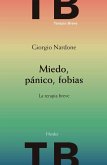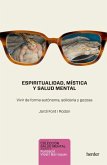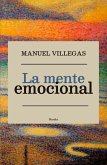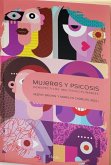What do Wagner's operas tell us about desire, love, and impossibility? In these four provocative essays, Slavoj Zizek explores Wagnerian dramaturgy from a radical psychoanalytic and philosophical perspective. Wagnerian heroes--marked by absolute longing, pure love, sublime pain, and endless waiting--embody the fundamental impasses of human desire. Zizek analyzes how music expresses what language cannot: the tension between desire and its failure. He also detects similar motifs in other composers such as Janáček, Tchaikovsky, and Schoenberg to show how musical theater repeatedly articulates the antagonisms of the unconscious. A fascinating work that combines opera, philosophy, and psychoanalysis with the acuity characteristic of one of the most influential thinkers of our time.
Bitte wählen Sie Ihr Anliegen aus.
Rechnungen
Retourenschein anfordern
Bestellstatus
Storno








